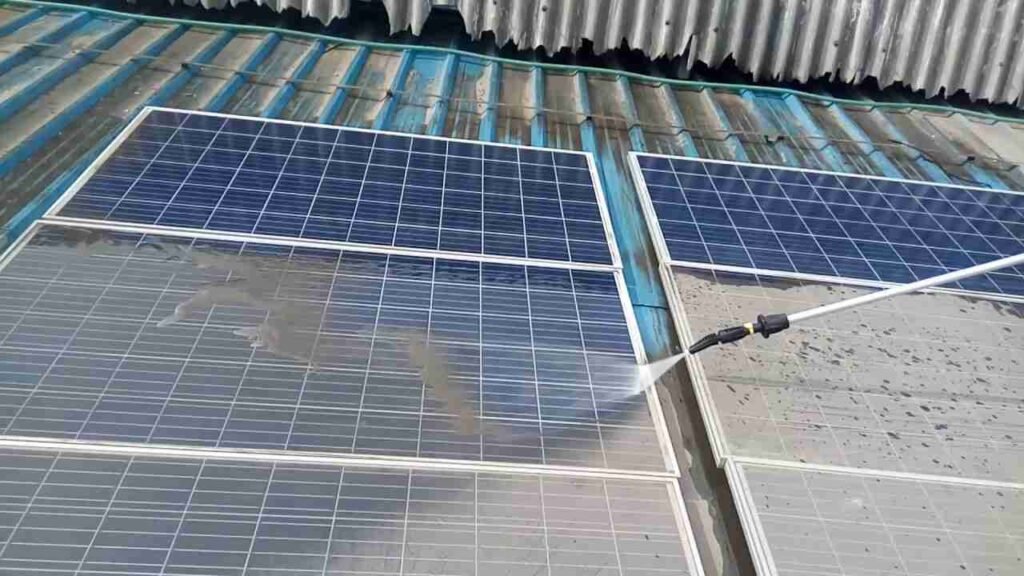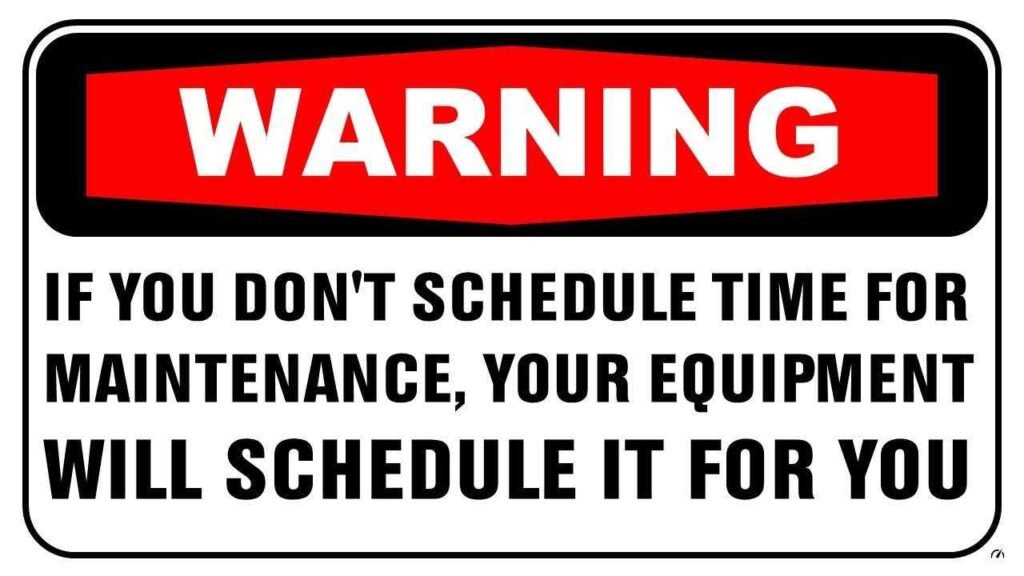If you’ve invested in commercial solar panels, you’ve made a smart move toward sustainable energy and cost savings. However, just like any other system, regular maintenance is key to ensuring they continue to perform at their best. Solar panels are built to be durable, but factors like weather conditions, dirt buildup, and wear and tear can affect their efficiency over time. Thankfully, with a few simple maintenance steps, you can significantly extend the lifespan of your panels and avoid costly repairs. In this guide, we will explore essential maintenance tips that can help keep your commercial solar panels running efficiently and maximize their long-term performance along with the guidance of Leaf Power Design.

Whether you’re new to solar energy or looking to optimize your current system, understanding the best practices for solar panel upkeep can help you protect your investment and maximize its long-term benefits. Regular attention to maintenance, including proper commercial solar wiring maintenance services, not only boosts efficiency but also helps prevent expensive repairs. With proper care, your commercial solar panels can continue to generate reliable energy for years to come. Let’s dive into some easy-to-follow tips!
Regularly Inspect Your Solar Panels for Damage
Regular inspection of your solar panels is essential for identifying any signs of damage. Harsh weather, such as hailstorms, strong winds, or heavy rain, can lead to cracks, scratches, or loose parts. Make sure to check for dirt buildup, debris, or any obstructions that might block sunlight. Inspecting the panels visually can help you spot potential issues before they affect performance. It’s important to also look for signs of electrical faults, such as overheating or burning smells. Early detection of any issues allows for prompt repairs, minimizing downtime and maintaining the efficiency of your system.
Clean Your Solar Panels to Ensure Optimal Performance
Dirt, dust, and debris can accumulate on your solar panels, blocking sunlight and reducing their efficiency. Cleaning your panels regularly is crucial for maintaining optimal performance. The frequency of cleaning depends on your location and environmental factors—panels in dusty areas or those surrounded by trees might need more frequent cleaning. Use soft brushes, mild soap, and water to avoid damaging the surface. Avoid abrasive materials, as they can scratch the panels. If you’re unsure, consider hiring a professional cleaning service to ensure the panels are cleaned safely and effectively, preserving their longevity and energy production.
Monitor Panel Efficiency with Regular Performance Checks
To ensure your commercial solar panels are performing at their best, regular performance checks are essential. Monitoring systems track how much energy is being produced and allow you to detect any drops in efficiency. If there’s a sudden drop, it could indicate a problem, such as dirt buildup, faulty wiring, or damaged panels. Many solar systems have built-in monitoring tools that give you real-time performance data. Regular checks help you detect problems early, saving you money in repairs and improving your system’s reliability. Keep an eye on energy production to make sure it aligns with your expectations and needs.
Keep Solar Wiring and Connections in Top Condition
The wiring and connections of your solar system are crucial to its performance. Over time, wires can become corroded, loose, or damaged, leading to power loss or potential hazards. Regularly inspect all connections and cables for wear and tear, checking for signs of overheating or corrosion. Ensure that the wires are secure and properly connected to prevent power interruptions. If you notice any damaged wiring, it’s important to replace it immediately to avoid safety risks or further damage to your system. Professional commercial solar wiring maintenance services can help keep everything in optimal condition.
Ensure Proper Ventilation Around Solar Panels
Proper ventilation is crucial to the long-term performance of your solar panels. Without adequate airflow, solar panels can overheat, reducing their efficiency and lifespan. Make sure there’s enough space between the panels and the roof to allow air to circulate freely. If your system is installed on a flat roof, ensure that the area underneath the panels is clear of debris or obstructions that could impede airflow. Excess heat can also damage the inverter and other components, so proper ventilation can protect your entire solar system from overheating and ensure it operates efficiently year-round.
Check and Maintain Your Solar Inverter
The inverter plays a vital role in converting solar energy into usable electricity for your building. Regular maintenance of the inverter is essential to ensure it functions properly. Check the inverter’s display for any warning signs, error codes, or warnings that might indicate a problem. Keep the inverter clean and free of dust, as buildup can cause overheating. Make sure the unit is in a cool, dry place to prevent damage from moisture or extreme temperatures. If your inverter is still under warranty, be sure to follow the manufacturer’s maintenance recommendations to avoid voiding the warranty.
Schedule Professional Maintenance for Comprehensive Care
While regular DIY checks are important, scheduling professional maintenance is essential for ensuring the health of your solar system. Professional technicians can perform comprehensive inspections that go beyond what you can do on your own. They have the tools and knowledge to detect hidden issues, like internal wiring problems or performance discrepancies, that could affect your system’s efficiency. Annual or bi-annual professional maintenance ensures that every component, from panels to inverters and batteries, is running smoothly. By investing in regular professional care, you can prevent costly repairs and ensure your system delivers consistent performance.

Protect Your Panels from Harsh Weather Conditions
Extreme weather conditions can cause significant damage to solar panels if not properly protected. To reduce the risk of damage from hailstorms, heavy snow, or high winds, consider installing protective covers or barriers around your solar panels. In regions prone to such weather, reinforced solar panel mounts can provide added protection. During extreme conditions, it’s a good idea to temporarily disconnect your system, especially if high winds are expected. Regularly check the panels after severe weather events to ensure no damage has occurred. Proper weather protection can greatly enhance the durability of your panels and prolong their lifespan.
Test Battery Systems for Proper Functionality
If your solar system includes battery storage, it’s important to test the batteries regularly to ensure they’re functioning properly. Over time, batteries can degrade, reducing their capacity to store energy. Keep an eye on the battery charge level and test it to ensure it’s holding power efficiently. Some systems have built-in monitoring tools that alert you to battery issues, but regular physical checks can help you catch problems early. If you notice a drop in performance or find that the battery is not charging properly, it may be time for a replacement. Well-maintained batteries ensure your system runs effectively, especially during power outages.
Maintain the Roof to Support Solar Panel Installation
The condition of your roof is just as important as the solar panels themselves. If the roof is damaged or weak, it can cause issues with the installation or lead to the panels becoming unstable. Regular roof inspections are necessary to check for leaks, cracks, or areas that might be prone to damage. If you’re planning to install more panels or expand your system, make sure the roof is in good condition to support the additional weight. Maintenance or repairs to your roof should be done before any solar system installation to avoid potential complications and ensure long-lasting performance.
Track and Address Solar System Performance Issues Early
Tracking your system’s performance can help you identify issues before they escalate. Regular monitoring will give you data on energy production and efficiency. If there’s a noticeable decline in performance, addressing it promptly can prevent further damage and costly repairs. Common issues include faulty wiring, inverter malfunctions, or dirt buildup on the panels. If performance dips significantly, consider consulting a professional to inspect the system. Early intervention allows for repairs that can keep the system running at peak efficiency and extend its overall lifespan. Monitoring and quick action are essential for maintaining optimal solar system health.
Conclusion
Maintaining your commercial solar panels is essential to ensuring they operate at their highest efficiency for years to come. By following regular maintenance practices such as inspecting for damage, cleaning the panels, checking wiring, and testing the inverter, you can avoid costly repairs and extend the lifespan of your system. Additionally, taking proactive steps like ensuring proper ventilation, protecting your panels from harsh weather, and maintaining battery systems can significantly enhance performance. Scheduling professional maintenance and addressing performance issues early will keep your system running smoothly, ultimately protecting your investment in solar energy. With proper care, your commercial solar panels will continue to provide reliable and cost-effective energy for the long term.
FAQs
How often should I clean my commercial solar panels?
Cleaning should be done every 6-12 months, depending on local conditions. Areas with high dust or bird activity may require more frequent cleaning.
2. Can I maintain my solar panels myself, or do I need a professional?
While basic inspections and cleaning can be done by the owner, professional maintenance ensures thorough checks and long-term system efficiency.
3. What should I do if my solar panels are producing less energy?
Check for dirt buildup, damaged wiring, or shading. If the problem persists, consult a professional to inspect the inverter or battery systems.
4. How can I protect my solar panels from harsh weather conditions?
Install protective barriers and ensure secure mounting. During extreme weather, temporarily disconnecting the system can help prevent damage.
5. How long do commercial solar panels typically last?
With proper maintenance, solar panels can last 25-30 years. Regular care helps extend their lifespan and ensures peak performance throughout this period.
